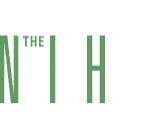 April 13, 2004
April 13, 2004
Vol. LVI, No. 8

Zinkernagel
To Give
Dyer Lecture
NINDS
Honors Career
of Thomas Chase
'Baby
Blues' Common, Usually Resolve Quickly
NIH
Plain Language
Awards Ceremony,
Apr. 20 in Lipsett
NIEHS
Ranked Third-Best Place for Postdocs
News
Briefs
New
Appointments
Awardees
Retirees
Study
Subjects Sought
Final
Photo
U.S. Department of
Health and Human Services
National Institutes of Health
NIH Record Archives
|
|


|
|

'Other Paths for Daughters'
Roundtable Examines Middle Eastern Research Opportunities for Women
By Carla Garnett
 Iran native Dr. Helen Sabzevari
Iran native Dr. Helen Sabzevari |
|
Imagine yourself as a teenager in science class, fascinated by a lecture describing the wonders of chemistry and biology. As various disciplines unfold before you, your mind races with possibilities: What if science is it? Might this be what I was born to do? If you are growing up in Lebanon, Iran or Iraq, however, your enthusiasm for further exploration is most likely tempered by realities: What job opportunities in science exist in my country? How far would I have to travel from home to study? And, if you're a girl in a culture that sees your potential solely as a wife and mother, the prospects for pursuing a career in science are more daunting still. Professional research seems improbable and unlikely. It should not seem impossible, though, according to the five NIH researchers — all women and all born in countries in the Middle East or North Africa — who gathered on Mar. 17 to discuss such issues in celebration of Women's History Month.
M
O R E . . . |
Intuition vs. Reason
Nobel Laureate Kahneman Posits Two
Forms of Thought in WALS Talk
By Rich McManus
Every talk in the Wednesday Afternoon Lecture Series (WALS) is, of course, interesting, but some talks are more interesting than others. Dr. Daniel Kahneman's Mar. 3 lecture, which he titled "A Perspective on Intuitive Thought," was especially provocative and fun because it dealt not with biological minutiae but with phenomena common to everyday life: reading the emotions on the other end of a phone conversation, figuring out whether presidential poll results are hogwash or meaningful, deciding if a stranger on the sidewalk is a threat or harmless.
M
O R E . . . |
 April 13, 2004
April 13, 2004


